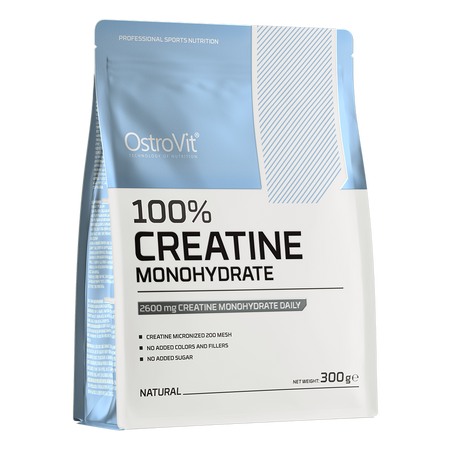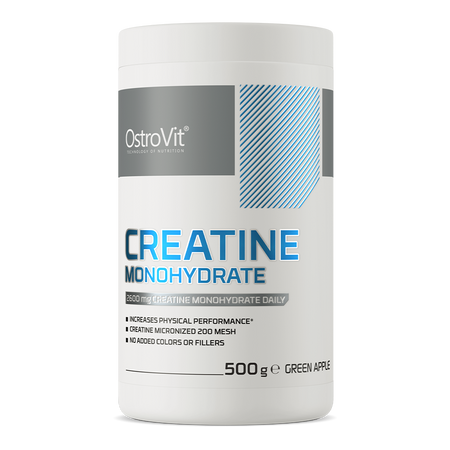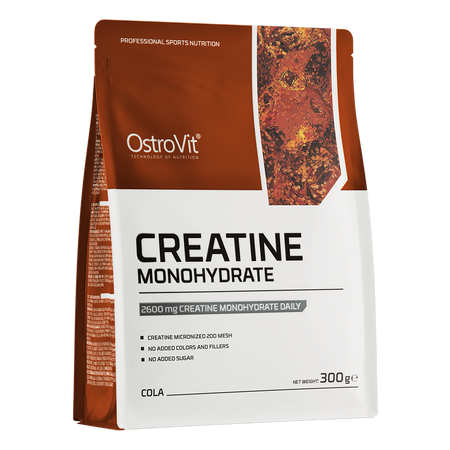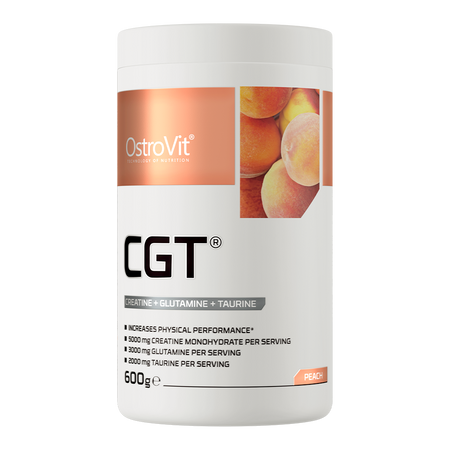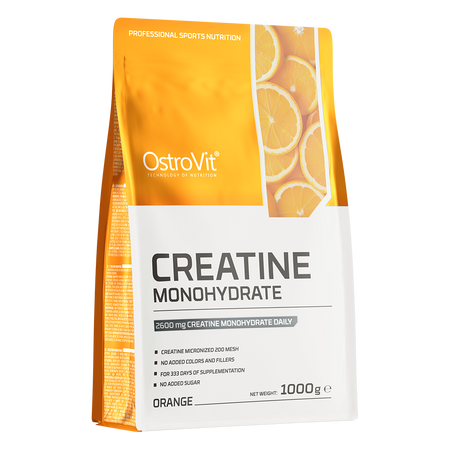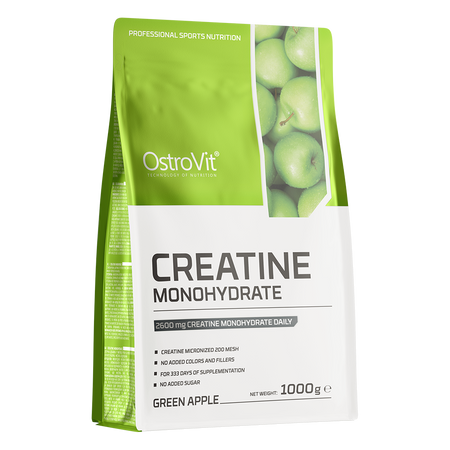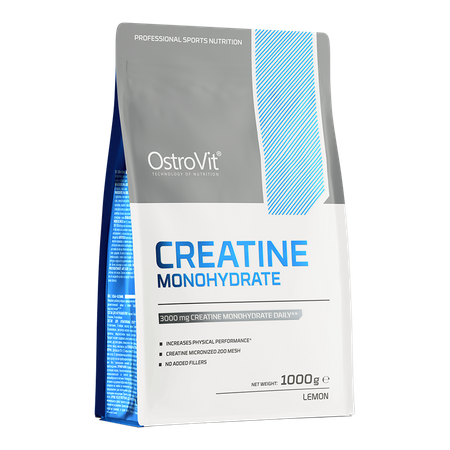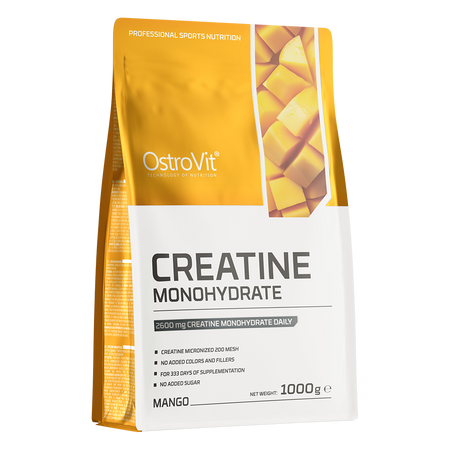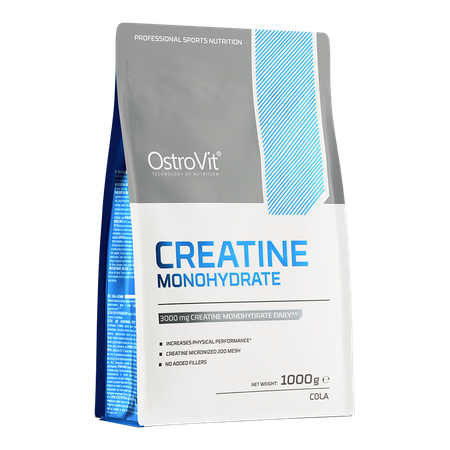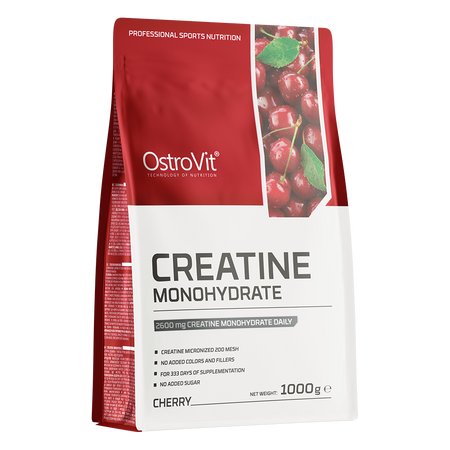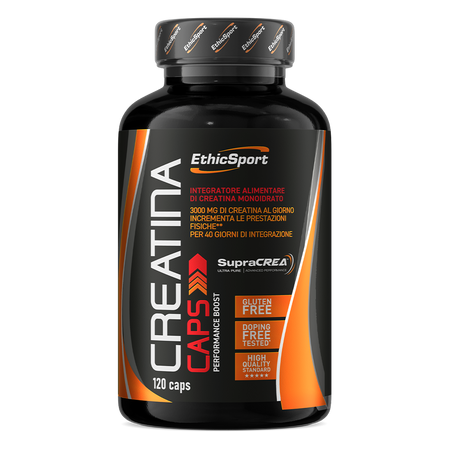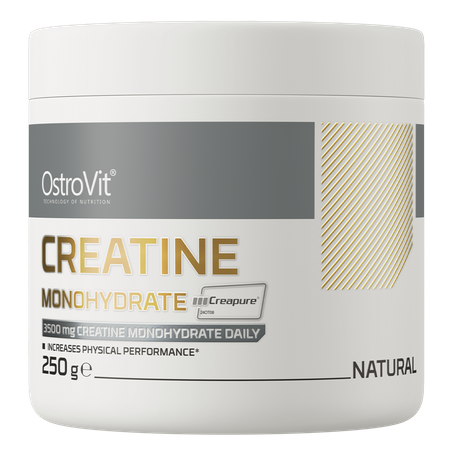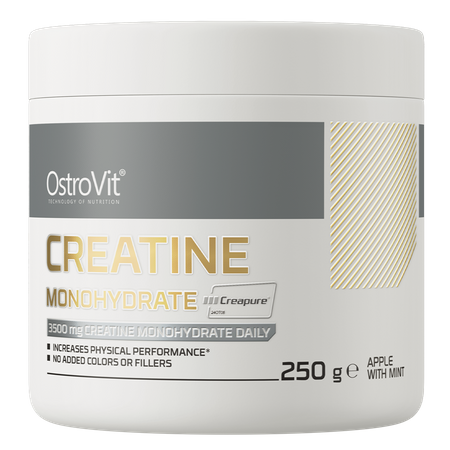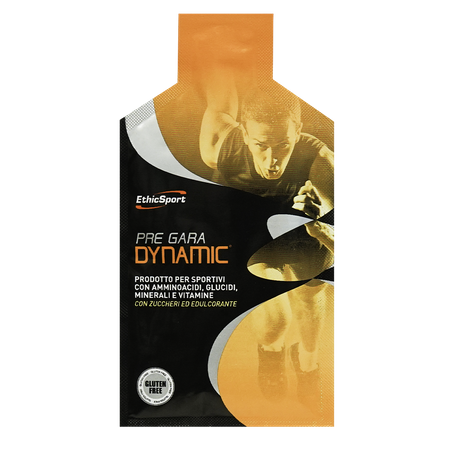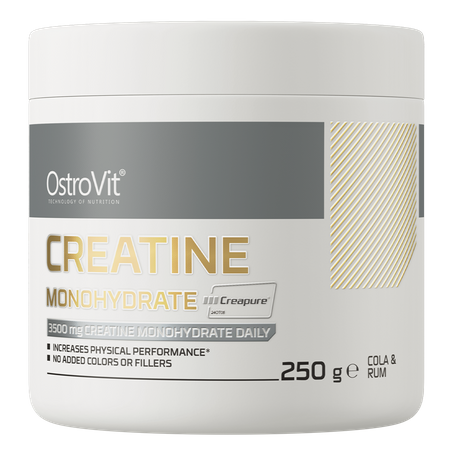Creatine Monohydrate
Creatine monohydrate is the most popular and best studied form of creatine. It is appreciated by both experienced athletes and amateurs of physical exercise.
Creatine monohydrate can help increase muscle strength and endurance, contribute to the development of muscle mass and positively affect regenerative processes after intense physical exercise.
Creatine monohydrate - what is it?
Creatine is a chemical compound that can be naturally formed in the human body from the combination of three amino acids, such as arginine, glycine and methionine .
In turn, creatine monohydrate is a combination of a water molecule and a creatine molecule into one molecule. Because creatine is a highly hydrophilic compound, it easily combines with water. Thus, the substance is distinguished by high bioavailability.
Creatine monohydrate is the simplest form of creatine in terms of structure. At the same time, it is its most popular character and is known among all athletes around the world.
Creatine monohydrate - action
Creatine monohydrate can base its action on anti-catabolic and anabolic functions.
Supplementation of creatine monohydrate may contribute to increasing the concentration of ATP molecules in the body and accelerating the process of building new muscle tissues. At the same time, the compound can stimulate protein synthesis. Thanks to this, creatine monohydrate can affect the increase in muscle density and size, as well as the development of muscle mass. What is more, the most popular form of creatine can positively affect strength and endurance, as well as improve athletic performance.
The substance may also promote the extension of the training process and faster muscle regeneration after intense physical exercise.
Who should consider supplementing with creatine monohydrate?
Creatine monohydrate is a form of compound, which will work both among experienced lovers of physical activity and among beginner sports amateurs.
This substance is especially recommended for people who focus on strength and body sports, because it can contribute, i.a. to the development of muscle mass.
At the same time the compound can have a positive impact on supporters of endurance and speed sports, as it can extend the duration of training and increase their intensity.
Because creatine monohydrate retains water in the body, it allows you to get quite quick effects of increasing muscle mass. Unfortunately, this is also a disadvantage of monohydrate - with irregular fluid replenishment in the body, increased water retention may negatively affect the functioning of the person taking the supplement. Therefore, when using creatine monohydrate, it is worth regularly replenishing fluids in the body.
Correct dosage of creatine monohydrate
Appropriate portion of the supplement containing creatine monohydrate should be individually selected to the needs of the athlete, the type of effort performed, its intensity, as well as the body weight of a physically active person.
There are two methods of taking creatine, namely:
- with the saturation phase,
- continuous.
The saturation phase consists in delivering large portions (20-30 g) of creatine monohydrate to the body for several days, divided during the day into several smaller doses. Then you should reduce the portions to 2-8 g each day. Such a cycle usually lasts from one to two months and allows rapid muscle saturation with creatine.
More and more often, however, supplementation with a saturation phase is being abandoned in favor of continuous intake of creatine-rich preparations. In the continuous phase, a dose of monohydrate of about 5 g of the compound is taken each day.
Regardless of the chosen method of supplementation, creatine monohydrate used along with a balanced diet and physical activity can contribute to the development of muscle mass, increase strength and efficiency.
Side effects of using creatine monohydrate
Since creatine monohydrate can retain water in the human body, it is extremely important to regularly replenish fluids while taking a dietary supplement to avoid dehydration and the occurrence of undesirable symptoms such as swelling.
Creatine monohydrate used in accordance with the manufacturer's recommendations and taken in appropriate doses is safe and can contribute to achieving the desired effects and improving sports performance.
In turn, taking dietary supplements rich in creatine monohydrate for a long time in too large portions, can contribute to the occurrence of undesirable symptoms such as muscle cramps, muscle strain, weight gain and stomach discomfort.

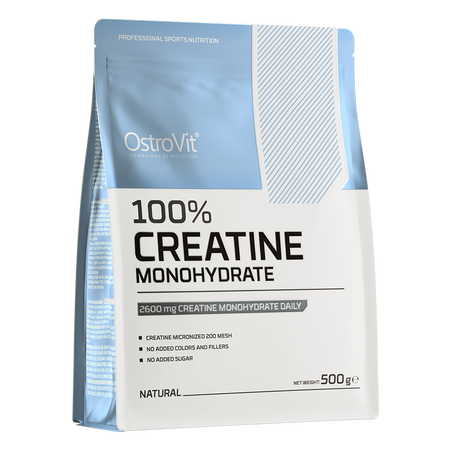
 Bestseller
Bestseller

